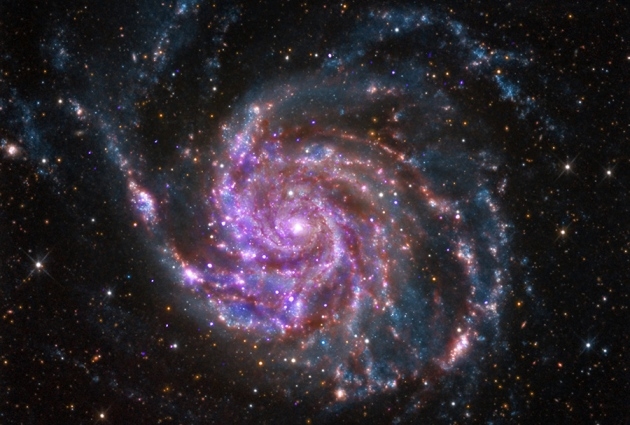Measurement of Universe's expansion rate creates cosmological puzzle

X-ray: NASA/CXC/SAO; Optical: Detlef Hartmann; Infrared: NASA/JPL-Caltech
Data from galaxies such as M101, seen here, allow scientists to gauge the speed at which the universe is expanding.
Davide Castelvecchi
11 April 2016
The most precise measurement ever made of the current rate of expansion of the Universe has produced a value that appears incompatible with measurements of radiation left over from the Big Bang1. If the findings are confirmed by independent techniques, the laws of cosmology might have to be rewritten.
This might even mean that dark energy — the unknown force that is thought to be responsible for the observed acceleration of the expansion of the Universe — has increased in strength since the dawn of time.
“I think that there is something in the standard cosmological model that we don't understand,” says astrophysicist Adam Riess, a physicist at Johns Hopkins University in Baltimore, Maryland, who co-discovered dark energy in 1998 and led the latest study.
Kevork Abazajian, a cosmologist at the University of California, Irvine, who was not involved in the study, says that the results have the potential of “becoming transformational in cosmology”.
Uncertainty limits
In the accepted model of cosmology, the Universe evolves mostly through the competing action of dark matter and dark energy. Dark matter’s gravity tends to slow cosmic expansion, while dark energy pushes in the opposite direction and makes it accelerate. Earlier observations made by Riess and others suggest that dark energy’s strength has been constant throughout the history of the Universe.
See full text